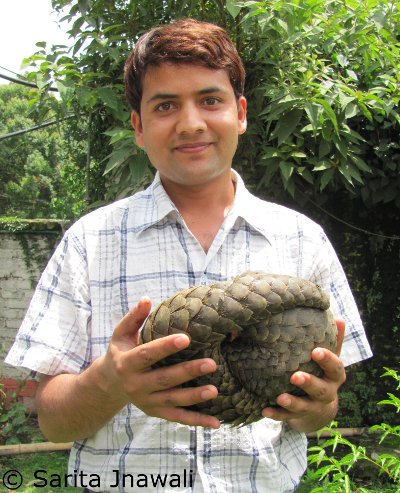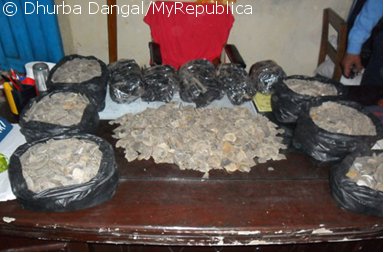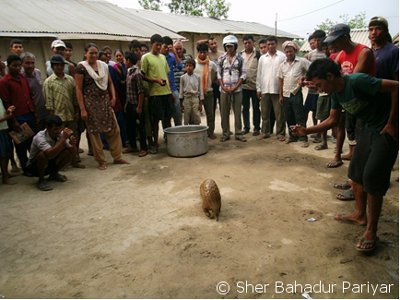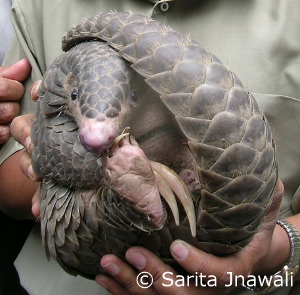
My name is Ambika, I am from Nepal and my EDGE Fellowship focuses on studying the Chinese pangolin (Manis pentadactyla) in the eastern Himalayas, Taplejung district (bordering China-Tibet to the north and India to the east) of Nepal.
I graduated in Forestry Science from the Institute of Forestry (IoF), Pokhara in 2010 and have been working for the National Trust for Nature Conservation (NTNC) since 2011.
I am also engaged in the conservation of the Asiatic wild dog (Dhole) in the Kangchenjunga Conservation Area. I am committed to studying endangered wild animals and working for their conservation.
Nepal is inhabited by two species of pangolins: the Chinese pangolin (Manis pentadactyla) and the Indian pangolin (Manis crassicaudata). Throughout their range, pangolins are threatened by illegal trade and habitat destruction.

Unfortunately, there is substantial evidence of recent illegal trade in pangolin body parts; last month, for example, fifty kilograms of pangolin scales were confiscated from a man arrested on the Chinese border.
Also last month, a man was caught near Kathmandu (the capital of Nepal) with a live pangolin. The pangolin was later handed over to NTNC/Central Zoo for a health check and to ultimately release it back into its natural habitat. I was lucky enough to get a chance to see this animal at the Central Zoo before it was released. There are several cases of pangolin trapping (knowingly or unknowingly) in the villages near Kathmandu and in most of the cases NTNC/Central Zoo is responsible for coordinating the animal’s rescue and release.

There are also cases of pangolin trapping from different parts of Nepal, but we do not have completely up-to-date information about this.
We do know that in the buffer zone of Bardia National Park in western Nepal, where limited human activity is allowed but strictly monitored, one Indian pangolin was recently trapped by local people and handed over to the park authorities (right). Later the pangolin was able to be released inside Bardia National Park.

My EDGE Fellowship project focuses on collecting important data on the population status and ecology of the poorly known Chinese pangolin as well as looking at trade issues and carrying out conservation awareness raising activities among local communities (Nangkholyang and Dokhu in the Taplejung District) to ensure the long-term conservation of this unique and endangered species. To do this, I will conduct social surveys, line transect surveys, and deploy infra red motion digital camera traps to study the pangolins.
Watch this space for how my project progresses!
- Check out our other new EDGE Fellow Grace